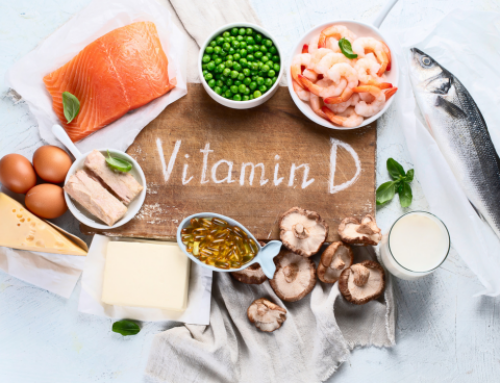Are Eggs Actually Good For You?
Americans love their eggs.
In January alone, United States shell egg production totaled 7.91 billion. That’s a lot of omelets. Eggs are one of the few foods that are both affordable and appetizing. But some people intentionally avoid eggs, citing their high fat and cholesterol content as deal-breakers. But are these people unnecessarily depriving themselves of healthy, wholesome food? Or are eggs just another popular yet unhealthy food that’s contributing to our nation’s obesity epidemic? STACK investigates.
The Incredible Edible Egg
Let’s start off by looking at all the nutritional positives eggs offer.
One large scrambled egg serves up six grams of protein. Protein is one of the most important nutrients for athletes. High-quality protein provides the amino acids that muscles need to repair and rebuild, allowing you to recover from exercise and get stronger over time. The body can also use protein as a source of energy. The protein found in eggs is especially useful because it contains all nine essential amino acids, which are critical for continued muscle building; and we must get all nine from dietary sources since our bodies cannot produce them. The Academy of Nutrition and Dietetics recommends that athletes consume 1.2 to 2 grams of protein per kilogram of body weight per day. A 200-pound athlete weighs roughly 91 kilograms, so he should aim to consume between 110 and 182 grams of protein each day.
One large scrambled egg also contains just 91 calories. Those numbers are even lower for a boiled egg (78 calories) or a poached egg (71 calories). To put that in perspective, one Blueberry Cake Donut from Dunkin’ Donuts contains 340 calories.
Eggs are also high in a number of valuable vitamins and minerals. One large scrambled egg contains 11 percent of the recommended daily value (RDV) of vitamin D. Vitamin D promotes calcium absorption and is critical for bone growth and remodeling. It’s also been found to play an important role in athletic performance. Higher vitamin D levels have been linked to better sprinting capacity, muscle strength and VO2 max. Many athletes are unknowingly deficient in vitamin D, since eggs are one of the few common dietary sources. One large scrambled egg also contains five percent or more the RDV of the following:
- Vitamin A
- Vitamin B-12
- Vitamin B-6
- Vitamin B-5
- Selenium
RELATED: New Study Finds That Athletes Lacking This Elusive Vitamin Are Weaker, Slower and Less Explosive
One large egg also contains 250 mg of choline per serving, specifically inside the yolk. Choline is a vitamin-like essential nutrient that helps keep metabolism normal and aids in the transport of lipids. According to the Linus Pauling Institute at Oregon State University, choline deficiency can cause muscle damage and abnormal deposition of fat in the liver. The recommended adequate intake of choline is 425 mg a day for women and 550 mg a day for men. Eggs are also high in lutein and zeaxanthin, two antioxidants that are critical for eye health. Consuming adequate amounts of lutein and zeaxanthin greatly reduces the risk of age-related eye disorders.
It’s also important to consider what’s not in an egg—namely, sugar. The average American eats way too much sugar, consuming about 88 grams (equivalent to 22 teaspoons) per day. Diets high in added sugar have been linked to obesity, Type 2 diabetes, heart disease, tooth decay, and even cancer. One large scrambled egg contains less than a gram of sugar, making it a smart low-sugar option.
The Red Flags
If you’re looking for a low-calorie, high-protein food, then eggs fit the bill.
But other aspects of their nutrition aren’t so black-and-white.
Eggs’ high cholesterol content is perhaps the chief concern. One large scrambled egg contains 169 mg of cholesterol—more than half the recommended average daily intake. Cholesterol is the circulating lipoproteins present in your blood. Cholesterol itself isn’t bad—your body naturally produces it at appropriate levels and circulates it through your blood so it can perform meaningful functions. But your liver actually produces more cholesterol when you eat a diet high in saturated and trans fats (these often come from animal sources like meat, poultry, and full-fat dairy products).
Too much cholesterol can form plaque inside your artery walls, making it more difficult for your heart to circulate blood. This can lead to blood clots, strokes, and heart attacks. Where it gets a bit confusing is that there’s “bad” cholesterol and “good” cholesterol. LDL cholesterol is the bad one, as it contributes to plaque build-up. HDL cholesterol is a good one, as it helps remove LDL from the arteries and expel it from the body. When people talk about the dangers of general “high cholesterol,” what they actually mean is a state where LDL levels are high in proportion to HDL levels.
But just because a food is high in cholesterol doesn’t necessarily mean it will have a negative effect on a person’s cholesterol levels when consumed. Though eggs are high in cholesterol, research shows they actually raise your HDL cholesterol (the good kind) and help make LDL cholesterol more benign.
A meta-analysis published in The BMJ found that higher consumption of eggs (up to one egg per day) is not associated with an increased risk of coronary heart disease or stroke. According to the Mayo Clinic, “Chicken eggs are high in cholesterol, but the effect of egg consumption on blood cholesterol is minimal when compared with the effect of trans fats and saturated fats.” So all that talk about the cholesterol in eggs actually raising your cholesterol? Turns out that it’s largely a myth.
Another common concern with eggs is their fat content. One large scrambled egg contains 7 grams of fat. However, 2.7 grams of that is monounsaturated fat, and 1.5 grams of that is polyunsaturated fat. In moderation, monounsaturated fats help to reduce blood pressure and protect against heart disease. They can also help the body better absorb vitamins and more efficiently use protein. Polyunsaturated fats have been found to improve blood cholesterol levels and decrease the risk of Type 2 diabetes. So yes, there is some fat in eggs—but a significant amount of it is of the healthy, unsaturated variety.
RELATED: 5 Non-Boring Ways to Eat Eggs
Many people who are worried about eggs’ high fat and cholesterol content intentionally avoid the yolks (often purchasing just egg whites) in an attempt to make a healthier choice. However, this may be counterproductive. While egg whites are extremely low in calories, the vast majority of valuable nutrients inside eggs are found in the yolk. The existing research also shows that eating eggs with yolks doesn’t increase your risk of obesity or heart disease—in fact, the opposite may be true.
For example, a study looked at the eating habits of overweight and obese subjects. Participants were randomly served one of two breakfasts every morning for a two-week period. Breakfast one was a breakfast of eggs. Breakfast two was a bagel-based breakfast that contained an equal amount of calories. Researchers found that the egg breakfast “induced greater satiety and significantly reduced short-term food intake.” A study found that consuming an egg-based breakfast led participants to subsequently eat roughly 270-470 calories less at lunch and dinner buffets that same day. If you’re worried eggs will either make you obese or give you heart disease (or both), take solace in the fact that the existing research draws no such connections.
The Verdict
Eggs are an awesome food, especially for athletes.
The two biggest knocks against eggs have always been that they’re high in cholesterol and high in fat. However, we now know that eating a food high in cholesterol doesn’t necessarily have a negative impact on your cholesterol levels—and such is the case with eggs. Additionally, much of the fat found in eggs is of the healthy variety.
Then consider the fact that eggs are packed with quality protein, low in calories, and virtually free of sugar. To top it all off, they’re usually dirt cheap—According to the American Egg Board, eggs are our nation’s “least expensive source of high-quality protein” at 17 cents per serving. Needlessly denying yourself such nutritious and affordable food is doing a disservice to yourself.
There are a couple of different types of eggs you’ll find on your way down the grocery aisle. Certain eggs are marketed as “Omega-3 Eggs.” The birds who lay these eggs are fed flaxseed, which increases the amount of omega-3 fatty acids in the yolk. Omega-3 fatty acids have anti-inflammatory effects, lower the risk of heart disease and might lower the risk of cancer. You’ll also see organic, cage-free, and free-range eggs. There has been found to be little difference between the nutritional content of these eggs and conventional eggs, the difference being how the animal is treated. Learn more here.
READ MORE:
RECOMMENDED FOR YOU
MOST POPULAR
Are Eggs Actually Good For You?
Americans love their eggs.
In January alone, United States shell egg production totaled 7.91 billion. That’s a lot of omelets. Eggs are one of the few foods that are both affordable and appetizing. But some people intentionally avoid eggs, citing their high fat and cholesterol content as deal-breakers. But are these people unnecessarily depriving themselves of healthy, wholesome food? Or are eggs just another popular yet unhealthy food that’s contributing to our nation’s obesity epidemic? STACK investigates.
The Incredible Edible Egg
Let’s start off by looking at all the nutritional positives eggs offer.
One large scrambled egg serves up six grams of protein. Protein is one of the most important nutrients for athletes. High-quality protein provides the amino acids that muscles need to repair and rebuild, allowing you to recover from exercise and get stronger over time. The body can also use protein as a source of energy. The protein found in eggs is especially useful because it contains all nine essential amino acids, which are critical for continued muscle building; and we must get all nine from dietary sources since our bodies cannot produce them. The Academy of Nutrition and Dietetics recommends that athletes consume 1.2 to 2 grams of protein per kilogram of body weight per day. A 200-pound athlete weighs roughly 91 kilograms, so he should aim to consume between 110 and 182 grams of protein each day.
One large scrambled egg also contains just 91 calories. Those numbers are even lower for a boiled egg (78 calories) or a poached egg (71 calories). To put that in perspective, one Blueberry Cake Donut from Dunkin’ Donuts contains 340 calories.
Eggs are also high in a number of valuable vitamins and minerals. One large scrambled egg contains 11 percent of the recommended daily value (RDV) of vitamin D. Vitamin D promotes calcium absorption and is critical for bone growth and remodeling. It’s also been found to play an important role in athletic performance. Higher vitamin D levels have been linked to better sprinting capacity, muscle strength and VO2 max. Many athletes are unknowingly deficient in vitamin D, since eggs are one of the few common dietary sources. One large scrambled egg also contains five percent or more the RDV of the following:
- Vitamin A
- Vitamin B-12
- Vitamin B-6
- Vitamin B-5
- Selenium
RELATED: New Study Finds That Athletes Lacking This Elusive Vitamin Are Weaker, Slower and Less Explosive
One large egg also contains 250 mg of choline per serving, specifically inside the yolk. Choline is a vitamin-like essential nutrient that helps keep metabolism normal and aids in the transport of lipids. According to the Linus Pauling Institute at Oregon State University, choline deficiency can cause muscle damage and abnormal deposition of fat in the liver. The recommended adequate intake of choline is 425 mg a day for women and 550 mg a day for men. Eggs are also high in lutein and zeaxanthin, two antioxidants that are critical for eye health. Consuming adequate amounts of lutein and zeaxanthin greatly reduces the risk of age-related eye disorders.
It’s also important to consider what’s not in an egg—namely, sugar. The average American eats way too much sugar, consuming about 88 grams (equivalent to 22 teaspoons) per day. Diets high in added sugar have been linked to obesity, Type 2 diabetes, heart disease, tooth decay, and even cancer. One large scrambled egg contains less than a gram of sugar, making it a smart low-sugar option.
The Red Flags
If you’re looking for a low-calorie, high-protein food, then eggs fit the bill.
But other aspects of their nutrition aren’t so black-and-white.
Eggs’ high cholesterol content is perhaps the chief concern. One large scrambled egg contains 169 mg of cholesterol—more than half the recommended average daily intake. Cholesterol is the circulating lipoproteins present in your blood. Cholesterol itself isn’t bad—your body naturally produces it at appropriate levels and circulates it through your blood so it can perform meaningful functions. But your liver actually produces more cholesterol when you eat a diet high in saturated and trans fats (these often come from animal sources like meat, poultry, and full-fat dairy products).
Too much cholesterol can form plaque inside your artery walls, making it more difficult for your heart to circulate blood. This can lead to blood clots, strokes, and heart attacks. Where it gets a bit confusing is that there’s “bad” cholesterol and “good” cholesterol. LDL cholesterol is the bad one, as it contributes to plaque build-up. HDL cholesterol is a good one, as it helps remove LDL from the arteries and expel it from the body. When people talk about the dangers of general “high cholesterol,” what they actually mean is a state where LDL levels are high in proportion to HDL levels.
But just because a food is high in cholesterol doesn’t necessarily mean it will have a negative effect on a person’s cholesterol levels when consumed. Though eggs are high in cholesterol, research shows they actually raise your HDL cholesterol (the good kind) and help make LDL cholesterol more benign.
A meta-analysis published in The BMJ found that higher consumption of eggs (up to one egg per day) is not associated with an increased risk of coronary heart disease or stroke. According to the Mayo Clinic, “Chicken eggs are high in cholesterol, but the effect of egg consumption on blood cholesterol is minimal when compared with the effect of trans fats and saturated fats.” So all that talk about the cholesterol in eggs actually raising your cholesterol? Turns out that it’s largely a myth.
Another common concern with eggs is their fat content. One large scrambled egg contains 7 grams of fat. However, 2.7 grams of that is monounsaturated fat, and 1.5 grams of that is polyunsaturated fat. In moderation, monounsaturated fats help to reduce blood pressure and protect against heart disease. They can also help the body better absorb vitamins and more efficiently use protein. Polyunsaturated fats have been found to improve blood cholesterol levels and decrease the risk of Type 2 diabetes. So yes, there is some fat in eggs—but a significant amount of it is of the healthy, unsaturated variety.
RELATED: 5 Non-Boring Ways to Eat Eggs
Many people who are worried about eggs’ high fat and cholesterol content intentionally avoid the yolks (often purchasing just egg whites) in an attempt to make a healthier choice. However, this may be counterproductive. While egg whites are extremely low in calories, the vast majority of valuable nutrients inside eggs are found in the yolk. The existing research also shows that eating eggs with yolks doesn’t increase your risk of obesity or heart disease—in fact, the opposite may be true.
For example, a study looked at the eating habits of overweight and obese subjects. Participants were randomly served one of two breakfasts every morning for a two-week period. Breakfast one was a breakfast of eggs. Breakfast two was a bagel-based breakfast that contained an equal amount of calories. Researchers found that the egg breakfast “induced greater satiety and significantly reduced short-term food intake.” A study found that consuming an egg-based breakfast led participants to subsequently eat roughly 270-470 calories less at lunch and dinner buffets that same day. If you’re worried eggs will either make you obese or give you heart disease (or both), take solace in the fact that the existing research draws no such connections.
The Verdict
Eggs are an awesome food, especially for athletes.
The two biggest knocks against eggs have always been that they’re high in cholesterol and high in fat. However, we now know that eating a food high in cholesterol doesn’t necessarily have a negative impact on your cholesterol levels—and such is the case with eggs. Additionally, much of the fat found in eggs is of the healthy variety.
Then consider the fact that eggs are packed with quality protein, low in calories, and virtually free of sugar. To top it all off, they’re usually dirt cheap—According to the American Egg Board, eggs are our nation’s “least expensive source of high-quality protein” at 17 cents per serving. Needlessly denying yourself such nutritious and affordable food is doing a disservice to yourself.
There are a couple of different types of eggs you’ll find on your way down the grocery aisle. Certain eggs are marketed as “Omega-3 Eggs.” The birds who lay these eggs are fed flaxseed, which increases the amount of omega-3 fatty acids in the yolk. Omega-3 fatty acids have anti-inflammatory effects, lower the risk of heart disease and might lower the risk of cancer. You’ll also see organic, cage-free, and free-range eggs. There has been found to be little difference between the nutritional content of these eggs and conventional eggs, the difference being how the animal is treated. Learn more here.
READ MORE:











